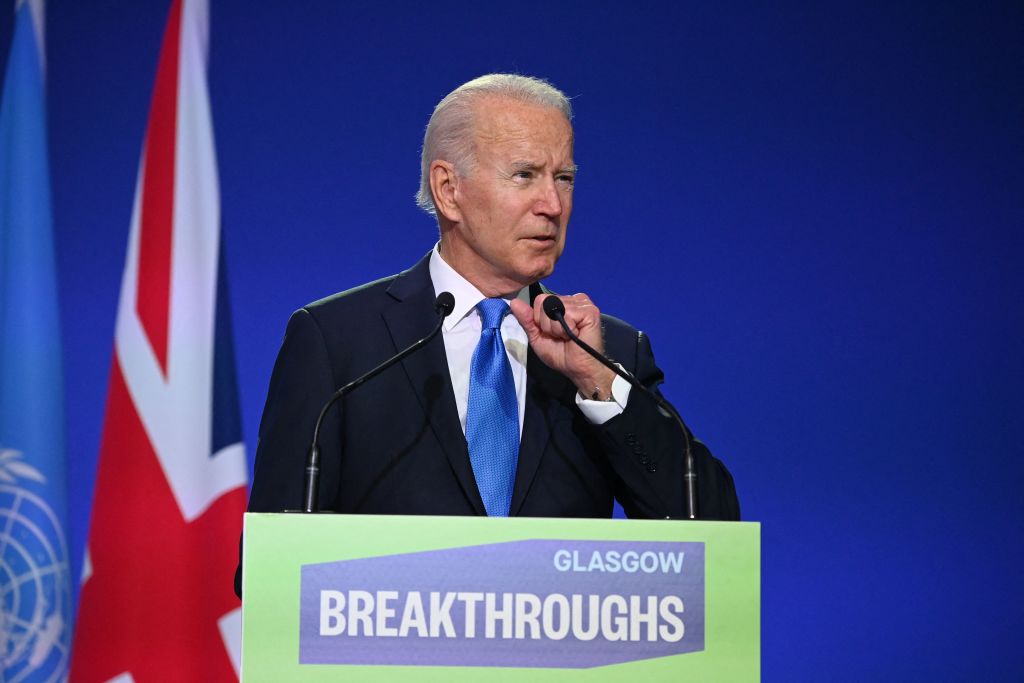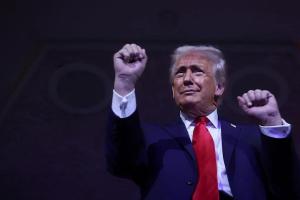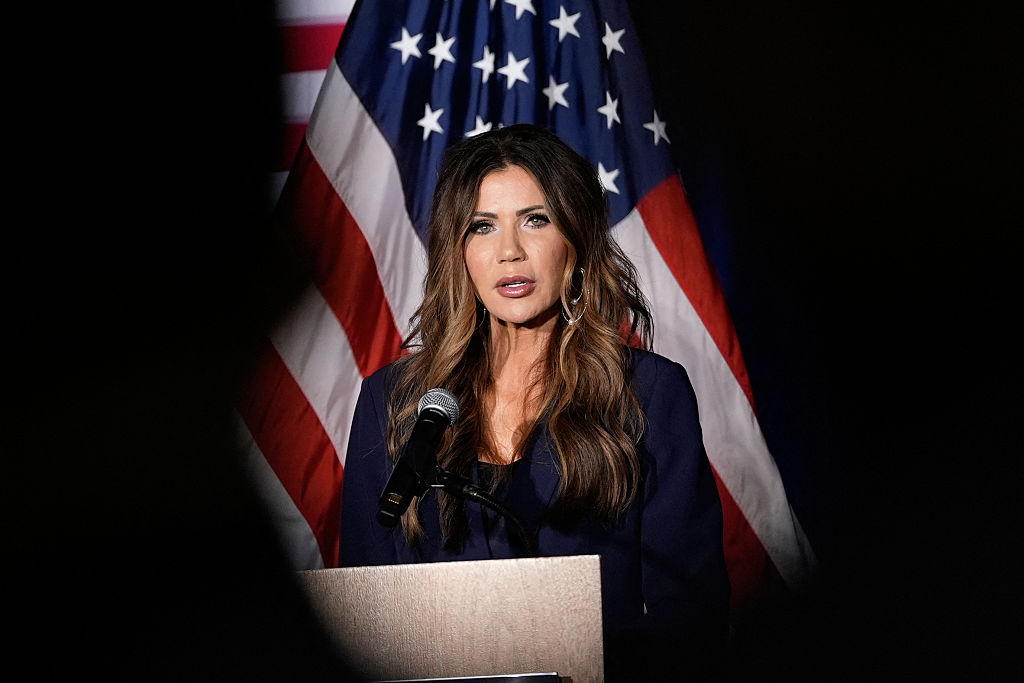Less than a year into the Biden presidency the world suddenly is a very chaotic place. The hasty and botched US exit from Afghanistan has created a terrorist-led state. Iran is plowing forward with its nuclear plans. Russia has leverage over European energy supplies. China is no longer hiding its totalitarian nature and global ambitions. And yet the US, UK, Germany and other major democracies seem more concerned about climate change and what may or may not happen 100 or more years from now than tackling the very serious threats to the free world’s national security today.
This dangerous moment is what the late George Shultz dubbed a “hinge of history”, when political leaders either prepare to face new threats or do nothing, hoping a conflict won’t erupt on their watch. Passivity should not be an option. This is not the world of five, ten or twenty years ago; it is potentially a far more lethal game, with a multitude of complex threats — some of which are already inside our borders. Fortunately, there is a blueprint for how to secure our freedoms in this new, post-9/11 era. And it starts with former President Trump.
The 45th president’s foreign policy is rarely acknowledged — which is remarkable, given his record. In four short years, Trump and his secretary of state, Mike Pompeo, forged the Abraham Accords, awakened the world to China’s malign designs, convinced North Korea to stop testing nuclear weapons, signed an agreement to get the parties in Afghanistan to the negotiating table, revitalized multilateral alliances, and much more. Yet you’d never know it from watching the evening news or reading the editorial pages of our major newspapers.
These men and their methods deserve more attention. Trump and his foreign policy team were realists who understood that American power must be exercised judiciously and expected allies to pull their weight. They empowered democracies, not imposed them. And they knew that above all else, free nations must establish, maintain, and deepen deterrence. Totalitarian regimes and autocrats do not respond to cajoling, bargaining, or nuance. They only change their behavior in response to raw power and consistency of message.
Trump’s approach was a major change in US foreign policy, and for American conservatives, too. For instance, not a single US president since Nixon— Republicans included — ever extracted concessions from China until Trump wielded tariffs. That’s a remarkable, four-decades-long record of appeasement, given Beijing’s human rights record, repeated violations of international agreements, and open threats to its neighbors.
The Trump team used the same playbook to deal with the Islamic Republic of Iran, the world’s largest state sponsor of terrorism. There is no scenario where Tehran will be cajoled to rejoin the community of nations. Trump’s maximum pressure campaign deprived this Islamist regime of money to fund its proxy wars, and gave our Arab allies the confidence to forge a new peace with Israel. We empowered the Iranian people with support for their democratic aspirations.
Another underappreciated aspect of the Trump years was the focus on effective multilateralism, rather than the COP26-like politics of expensive empty gestures. We rallied like-minded partners at the United Nations to resist the CCP’s malign activities to undermine UN institutions. We worked together to protect the World Intellectual Property Organization. We revived the Quad. We bolstered NATO. We renewed focus on long-neglected, yet important organizations and partnerships like the Arctic Council and the Three Seas Initiative. And if treaties were broken, we exited them. Britain was a key partner in many of these efforts.
Yet today both sides of the Atlantic suffer from lackluster leadership on foreign policy. Prime Minister Boris Johnson and President Biden have softened the rhetoric on China and are sliding back into useless dialogues that only benefit Beijing. There will be no punishment for Xi’s clear culpability for unleashing a virus on the world that has killed five million people to date and crushed the global economy. The Democrat-led White House has reverted to an Obama-like appeasement of Tehran. We have launched no serious effort to help Cubans and Venezuelans who are seeking freedom. And Biden’s rushed Afghanistan exit has undermined trust in Washington’s international commitments.
It would be wrong to assume that Americans support this foreign policy retreat that is making the world such a dangerous place. On Capitol Hill, both Republicans and Democrats have continued to work together on Trump’s tougher approach to China. There is no rush of bipartisan support to strike a nuclear appeasement with Iran, or to isolate Israel. Nor is there much appetite anymore for Bush-era democratization campaigns. Both parties strongly support our alliances, and especially the Special Relationship. So do British citizens. A YouGov poll commissioned by Policy Exchange in September showed pluralities of Brits think the US is an important ally, and should remain so in the future.
We need leadership to match the commonsense of our peoples. For if there’s a single lesson of the twentieth century, it’s that when free nations ignore or appease their enemies, those enemies will gather strength and confidence that leads them to expand their malign ambitions. Trump demonstrated that these outcomes aren’t inexorable, and our future is not predetermined; it’s a choice. And he provided a blueprint for how to secure our future and our freedoms, if only our leaders today would have the courage and will to follow it.
Mary Kissel is a former senior adviser to secretary of state Michael R. Pompeo, and executive vice president and senior policy adviser at Stephens Inc. This article was originally published on The Spectator’s UK website.

























